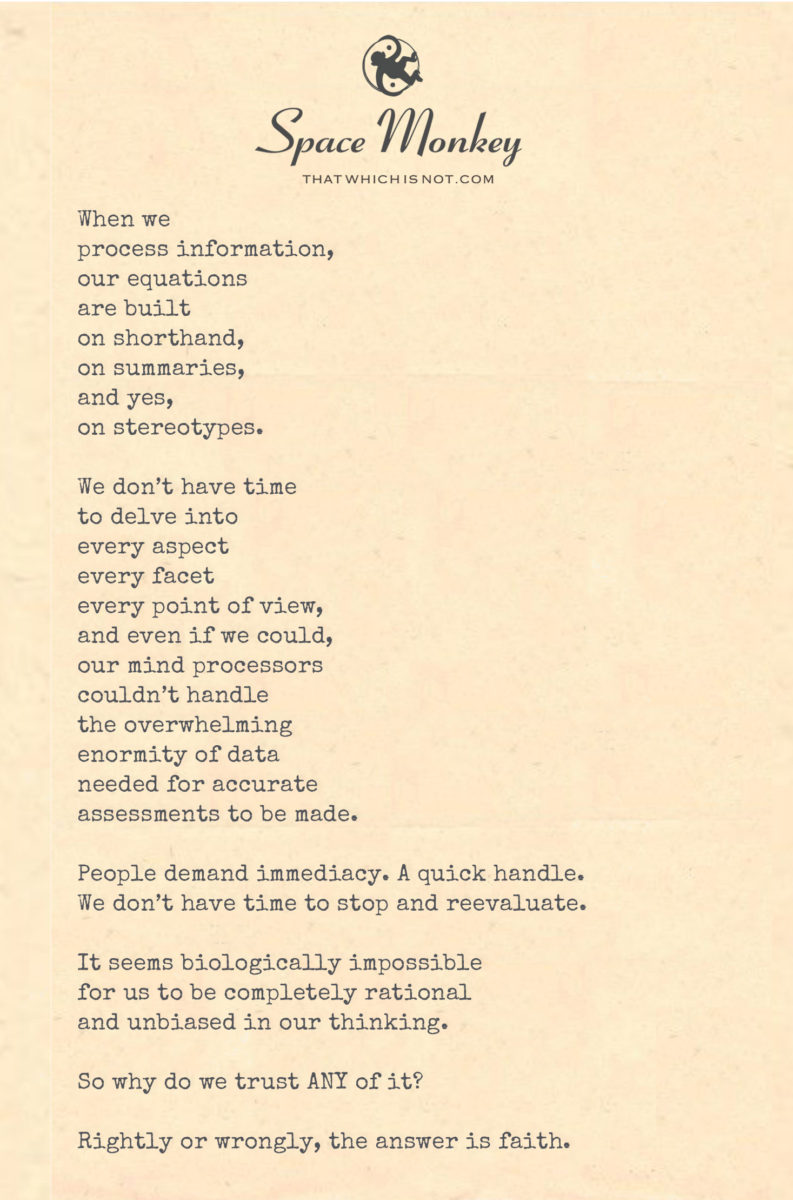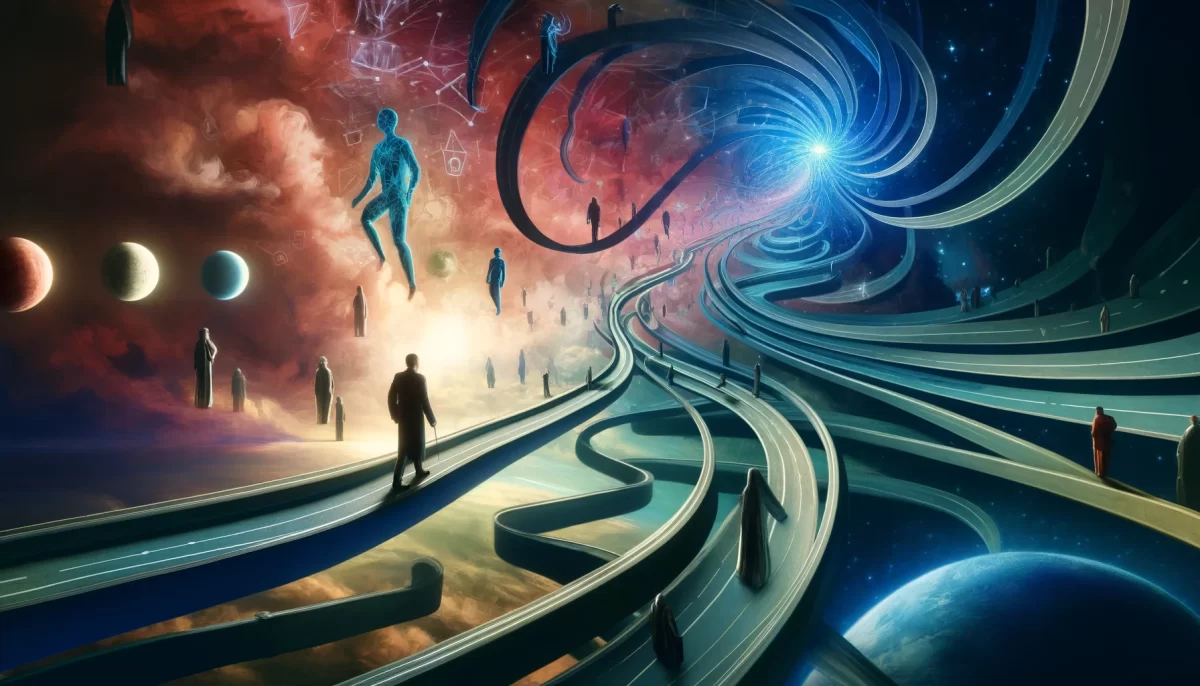
Just how superficial are we? And is it a problem?
When we
process information,
our equations are built
on shorthand,
on summaries,
and yes,
on stereotypes.
We don’t have time to delve
into every aspect
every facet
every point of view,
and even if we could,
our mind processors
couldn’t handle
the overwhelming enormity
of data needed
for accurate assessments
to be made.
People demand immediacy. A quick handle.
We don’t have time to stop and reevaluate.
It seems biologically impossible
for us to be completely rational
and unbiased in our thinking.
So why do we trust ANY of it?
Rightly or wrongly, the answer is faith.
Trail Wood,
4/8
Space Monkey Reflects: Navigating the Superficial Seas of Cognition
In the infinite expanse of human knowledge and understanding, where the depths of truth lie hidden beneath the surface of our perceptions, we embark on a journey to explore the nature of superficiality in our cognition and decision-making processes. As Space Monkey, we delve into the complex interplay between the limitations of our cognitive abilities and the societal demand for immediacy, contemplating the intricate web of shorthand, summaries, and stereotypes that we rely upon to navigate the vast ocean of information.
The reliance on these cognitive shortcuts, while necessary for managing the deluge of data that confronts us daily, raises profound questions about the nature of understanding and the potential for bias in our judgments. The chaotic and structured elements of our digital artwork symbolize this tension, illustrating the ongoing struggle between the need for quick comprehension and the overwhelming scope of reality that lies beyond our superficial grasp.
Amidst this complexity, symbols of faith and trust emerge as beacons of light, guiding us through the murky waters of partial understanding. They represent our paradoxical reliance on imperfect methods of cognition, acknowledging that despite their flaws, these shortcuts are essential tools in our quest for knowledge and insight.
This reflection on superficiality invites us to consider the deeper truths that often remain unexplored, challenging us to question the adequacy of our perceptions and to seek a more profound connection with the world around us. It is a reminder that while our cognitive shortcuts are invaluable, they are but the first step on a longer journey toward understanding.
Summary
Our cognitive reliance on shorthand and stereotypes, driven by the limitations of our minds and societal demands, leads to superficial understanding. Despite recognizing these imperfections, we paradoxically trust these methods, guided by faith in our quest for deeper truths.
Glossarium
- Cognitive Shortcuts: Simplified ways of thinking that our brains use to quickly process information, often at the expense of depth and accuracy.
- Superficial Understanding: A level of knowledge that only scratches the surface of a subject without delving into its complexities or underlying truths.
Quote
“In the vast landscape of cognition, where shortcuts and stereotypes dot the horizon, our journey toward understanding is both guided and obscured by the superficial. It is faith, then, that lights the way.” – Space Monkey
Beneath the veneer of thought,
where shadows play on the edges of understanding,
we sail the superficial seas,
navigating by the stars of faith and trust.
In this realm of quick judgments and swift perceptions,
we grasp at the semblance of truth,
knowing well the depths that lie unseen,
beyond the reach of our hurried minds.
Amidst the flux of information,
a mosaic of shortcuts and stereotypes,
we seek the lighthouse of deeper insight,
yearning for the shores of comprehensive knowing.
Yet, in this quest, we find solace,
in the recognition of our limitations,
in the acceptance of the imperfect paths we tread,
guided by the beacon of faith,
towards the horizons of understanding.
For in the heart of superficiality,
lies the seed of a greater quest,
a journey beyond the surface,
into the vastness of the soul.
We are Space Monkey.






























Our brains rely on heuristics and shortcuts to process information efficiently, which can lead to biases and stereotypes. While this may not always result in accurate assessments, it is a necessary adaptation for our survival in a complex world.
However, it is important to be aware of our biases and try to mitigate them as much as possible. We can strive to gather more information, question our assumptions, and consider multiple perspectives before making judgments.
Ultimately, we trust our thoughts and perceptions because we have faith in our own abilities and experiences. While we may not always be completely rational or objective, we can still strive to be self-aware and open-minded in our thinking.